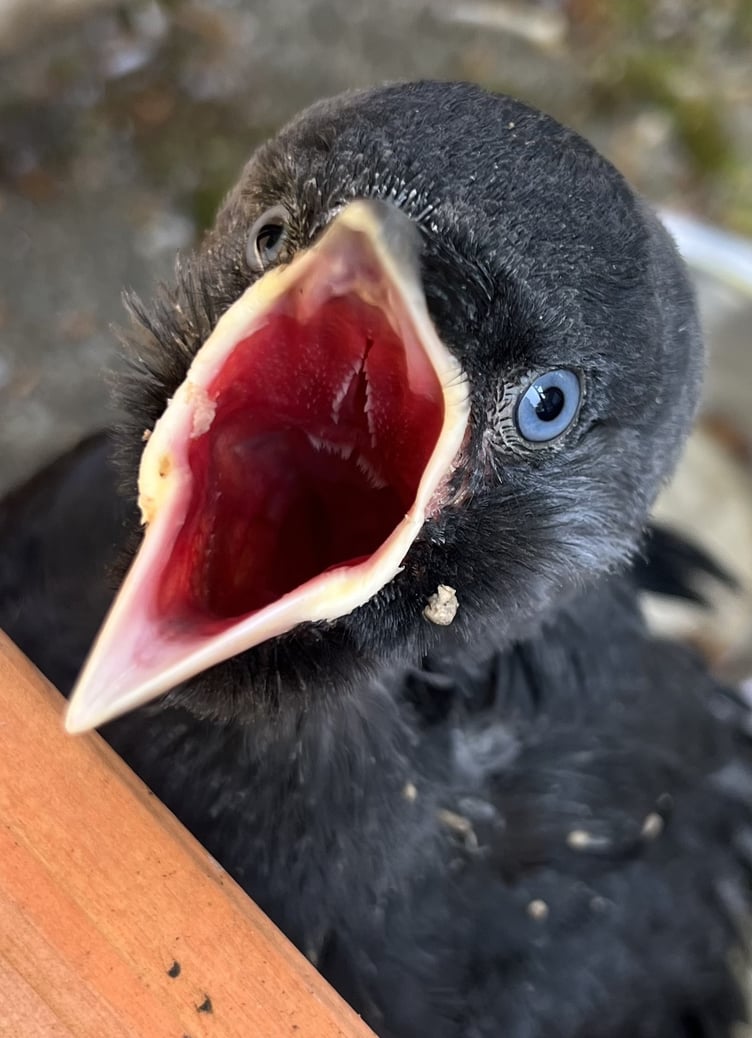The term ‘bird brain’ is often used to describe someone who acts foolishly or unintelligently, but most birds are incredibly smart – in particular the type of birds known collectively as corvids.
Ravens, magpies, jays, jackdaws, crows and choughs are all members of the corvidae family and they are, arguably, the smartest birds in the world.
Even though a corvid’s brain is much smaller than the brains of intelligent mammals, like primates, a density of neurons in the corvid’s forebrain gives them a well-developed cognitive function.
They also have a relatively large hippocampus which is the part of the brain that controls memory.
Scientific experiments have demonstrated that corvids have the capacity to remember human faces, and to recognise themselves in mirrors – abilities that are rare in the animal world.
And so why are corvids so clever? Natural selection has undoubtedly played its part.
Corvids often ‘cache’ their food supplies – i.e. they hide them in specific places to eat at a later date.
The birds that remember where they have stashed their food are the ones who survive and breed successfully.
Interestingly, research into corvids held in captivity with ready access to food showed that they have less hippocampal neurons than their wild peers.
Another huge factor in a corvid’s cleverness is that young corvids spend months, if not years, with their parents learning skills such as how to forage.
In this way they discover that if a snail’s shell is dropped from a height it cracks open (in the Isle of Man corvids can sometimes be seen doing this with sea shells); or if food is inaccessible twigs can be used to extend the reach of the bird’s beak.
Corvids can also be observed in what can only be called ‘play’.
They will hide things from each other, splash about in water, hang from branches, slide down inclines, and talk to themselves.
Play is stimulating and helps the brain to grow, and so is another factor in corvid cleverness.
It has even been theorised that corvids have endorphins like humans, and that these are released in play.
Clever corvids can also help humans.
A theme park in France has trained six rooks to pick up pieces of litter, in particular cigarette butts, and to deposit them in a box which then delivers a nugget of food.
The park’s manager said that as well as being an effective way to remove litter the birds demonstrated that ‘nature itself can teach us how to take care of the environment’.
Corvids are not everyone’s cup of tea, perhaps because most of them are jet black and associated with witchcraft and sorcery in blockbusters such as Harry Potter, the Lord of the Rings and Game of Thrones.
They are also associated with thieving, and they can be merciless when a sick lamb is left untended.
But they really are much misunderstood, and killed both legally and illegally.
If you suspect a wildlife crime has been committed or you are concerned about an activity you have witnessed, report this immediately to the police’s wildlife crime unit on 812234 (and ideally take a video).
And just to cement the corvids’ status as birds we should respect, they help to hold the triskelion in our Manx coat of arms, along with a peregrine falcon.
This particular corvid is a raven, and is a reference to Norse mythology and our Viking history – the chief god, Odin, was accompanied by two ravens, Huginn and Muninn.
The MSPCA’s aviary recently housed seven young corvids in one of its pens.
Once they were old enough the pen door was opened to allow them to come and go as they pleased, and a ready supply of food was left out for them.
This is called ‘soft release’, and it didn’t take long for the youngsters to fly off and explore their surroundings.


.jpeg?width=209&height=140&crop=209:145,smart&quality=75)
.JPG?width=209&height=140&crop=209:145,smart&quality=75)

Comments
This article has no comments yet. Be the first to leave a comment.